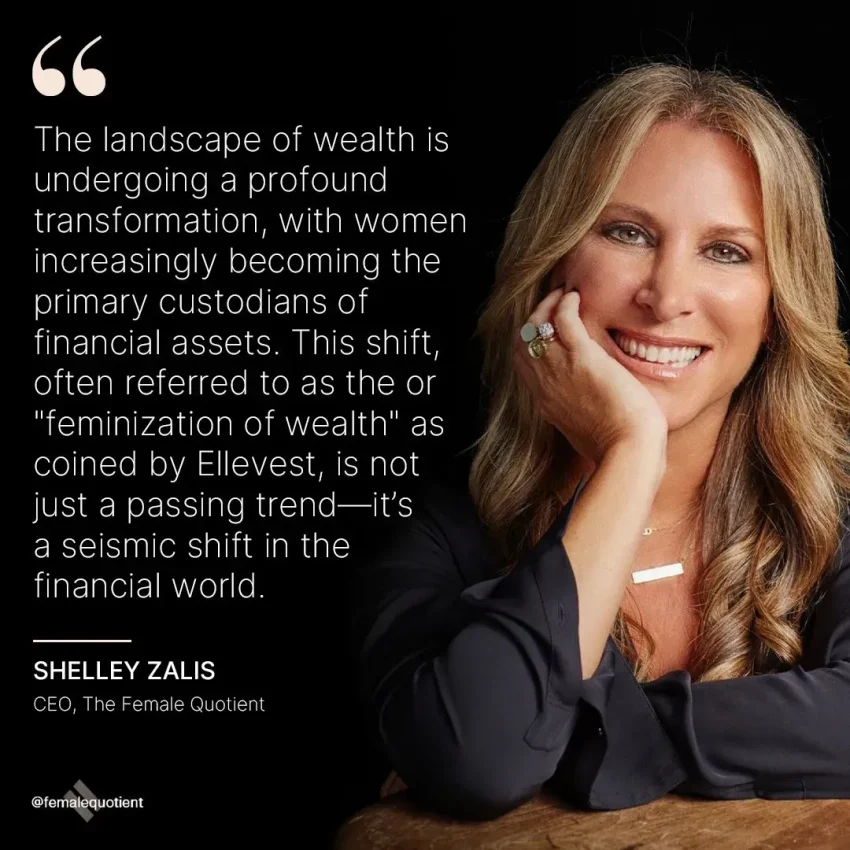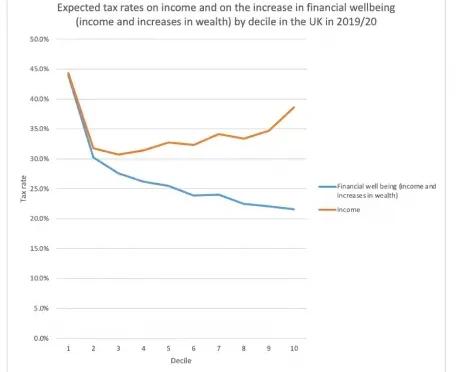Women inheriting wealth face a unique set of challenges and opportunities as they navigate the complexities of managing sizable assets, often for the first time. The emotional toll of losing a partner can be overwhelming, but it also presents a chance for newfound financial independence for women. This growing demographic of widows and their experiences in handling family fortunes are critical as we approach the era of wealth transfer to women. As financial leaders in their households—often taking on the role of CFO of family finances—these women are learning to reshape their financial futures amidst grief and uncertainty. With an estimated $83 trillion expected to be passed down over the next few decades, the spotlight on women in wealth management is brighter than ever before, emphasizing the need for informed and confident financial decisions.
The topic of women managing wealth, particularly those who have inherited significant estates, highlights the shift in how financial power is perceived in contemporary society. Often referred to as breadwinners or financial stewards, these women undergo substantial transformations in their roles following the loss of a spouse. The complexities associated with widows and finances extend beyond mere inheritance, as they often grapple with the responsibilities and pressures that come from controlling family assets. This dynamic shift not only underscores a broader societal change but also accentuates the need for comprehensive financial education and support services aimed at fostering female empowerment in the world of wealth management.
The Emotional and Financial Impact of Wealth Inheritance on Women
Inheriting wealth can be a double-edged sword for women, particularly when it comes amidst emotional turmoil, such as the loss of a spouse. The journey begins with intense grief paired with sudden financial responsibilities that many women are unprepared to handle. This shock can lead to significant anxiety about managing newly acquired assets and maintaining a desirable lifestyle. Women may feel overwhelmed by the weight of their newfound roles as the Chief Financial Officer (CFO) of their family finances, requiring them to transition from mourning to learning complex financial systems, including investment strategies and estate planning.
The emotional processing involved in these transitions is often mirrored by the steep learning curve required to understand financial management. Studies indicate that many widows struggle to reclaim their financial independence following the death of their partners. They may feel ill-equipped to address questions surrounding wealth preservation, investment diversification, and even understanding basic financial terminologies. Taking the time to educate themselves in financial literacy can help ease the transition into this new phase, thereby providing a sense of empowerment and security.
Women Managing Wealth: Shifting Paradigms in Financial Planning
As more women assume the responsibility of managing family wealth, traditional dynamics in financial planning are rapidly evolving. This shift, known as the Great Wealth Transfer, indicates that an unprecedented amount of wealth — over $83 trillion — will transition from male breadwinners to women over the coming decades. Consequently, women are stepping into roles that were historically reserved for men, establishing themselves as savvy investors and informed family financial managers. Women managing wealth today can leverage their skills, contributing to family decisions with a strong voice backed by knowledge.
Moreover, financial institutions are beginning to adapt to this shift, recognizing the importance of building relationships with female clients who may previously have been excluded from financial discussions. Financial advisors are encouraged to take a holistic approach when working with women, ensuring that they feel heard and educated throughout the decision-making process. This paradigm shift fosters an environment where women are not merely passive inheritors but active participants in wealth management, paving the way for a more collaborative and inclusive financial future.
Strategies for Achieving Financial Independence After Loss
Achieving financial independence after the loss of a spouse is a critical goal for many widows, often requiring a well-structured approach to managing wealth. One effective strategy is to create an organized financial blueprint that includes all assets, investments, and insurances. By conducting annual reviews and having open dialogues about finances while both partners are still alive, women can greatly ease the burden of making financial decisions alone in times of crisis. This proactive approach not only demystifies their family’s financial landscape but also builds confidence and security.
Additionally, working closely with financial advisors to develop personalized investment strategies can safeguard their financial future. Women are encouraged to take ownership of their portfolios by asking questions, understanding the intricacies involved, and challenging traditional stereotypes about risk aversion. Many women exhibit a strong track record of financial acumen, often outperforming their male counterparts by adhering to sound long-term strategies. By prioritizing education and communication, widows can foster independence and navigate the complexities of wealth with greater ease.
Understanding the Complexities of Wealth Transfer
The intricacies of wealth transfer present unique challenges for women, particularly as many encounter complications descended from traditional estate planning methods. In blended families or situations involving divorce, the allocation of assets can become contentious, leading to potential disputes. It’s crucial for widows to be aware of how estate laws may impact their inheritance and to ensure that their desires are reflected in updated wills. Consulting with financial and legal advisors who understand their particular situation can provide clarity and security in managing these complexities.
Moreover, understanding potential tax implications tied to wealth transfer can have significant effects on long-term planning. For instance, if a deceased husband held significant business interests or investments, the widow must navigate complex shareholder agreements that could restrict her access to those assets. It’s vital for women to remain engaged and informed, advocating for their rights and interests as beneficiaries. By fostering a strong support network and seeking reliable advice, women can tackle these hurdles head-on, ensuring a more favorable outcome in wealth distribution.
Creating Support Systems for Widows in Transition
Building a robust support system is essential for women navigating the complexities of inheriting wealth. Connecting with other widows through peer networks can provide comfort and shared wisdom in facing similar challenges. Organizations like The Beam offer valuable resources and coaching tailored to women managing wealth, fostering a community that emphasizes empowerment and informed decision-making. These platforms allow women to express their concerns and seek advice from those who understand their unique situations firsthand.
Furthermore, establishing relationships with financial and legal advisors before the need arises can demystify the process of wealth management. Women should advocate for their financial education during these critical conversations, demanding clarity from advisors and feeling comfortable asking questions. Informal meet-ups, workshops, or even regular financial check-ins can contribute substantially to personal development in financial management. By cultivating a reliable support system, widows can transition into their new roles with more confidence and resourcefulness.
Breaking Down Financial Jargon: Empowering Women Investors
One of the significant barriers women face in managing wealth is the often overwhelming financial jargon used by financial professionals. This can lead to feelings of alienation or ineffectiveness in engaging with financial services. Financial education initiatives that focus on breaking down complex terms into understandable concepts can empower women to take charge of their financial futures. Female entrepreneurs and investors are increasingly advocating for transparency and clarity in communication from advisors, emphasizing that there are no “stupid questions” when it comes to finances.
Encouraging inclusive dialogue around wealth management can help dispel the myths that women are less capable investors. By fostering an environment where women feel confident to ask questions, explain their needs, and engage with advisors proactively, the financial sector can better serve female clients. This movement promotes a culture where women feel competent and empowered, further enhancing their ability to manage their wealth effectively and lead financially independent lives.
Navigating the Financial Challenges of Blended Families
The dynamics of blended families introduce additional complexities for widows managing inherited wealth. With many household structures evolving, it is essential for women to understand how these changes affect financial planning and asset distribution. Ensuring that all family members are recognized in financial documents, such as wills and trusts, is crucial in mitigating potential disputes or feelings of inequity. Careful planning can help in passing on assets, ensuring that both children from previous marriages and new partners are provided for as per the late husband’s wishes.
Open conversations about inheritance in blended families can help prevent misunderstandings and foster a collaborative atmosphere. Women might consider consulting with family counselors or financial advisors who specialize in blended family structures to create a financial plan that respects everyone’s needs. Addressing these complexities with tact and transparency not only eases tensions but also reinforces a sense of security in the wealth management process.
The Impact of Education on Women’s Financial Literacy
Education plays a pivotal role in fostering financial literacy among women, particularly in the wake of inheriting wealth. With studies indicating that many women lack exposure to financial education, there is a pressing need to implement educational programs focused on investments, estate planning, and wealth management. Women who take the initiative to gain financial knowledge are better prepared to navigate the complexities of managing their financial affairs after loss, leading to more confident decision-making.
Moreover, as the demand for personalized financial education expands, institutions and advisors must adapt by offering tailored workshops and training sessions specifically designed for women. This not only builds competency but also creates a foundation for ongoing dialogue about finances, enabling women to feel empowered in their roles as financial stewards. By promoting educational opportunities, we can equip women with the skills needed to take ownership of their finances and foster a community of informed investors.
Embracing Financial Independence with a Collaborative Approach
As women inherit wealth, embracing a collaborative approach to financial management can significantly enhance their financial independence. Engaging in partnerships with advisors, educators, and peers allows women to share experiences, strategies, and insights that facilitate a deeper understanding of wealth management. This collective journey not only fosters confidence but creates a resilient network where women can lean on each other for support and encouragement.
Additionally, incorporating personal values and future aspirations into financial planning strengthens the decision-making process. Women should assert their vision of what they want to achieve through their wealth, whether it pertains to family security, philanthropy, or personal projects. By doing so, they not only reinforce their independence but also ensure that their wealth aligns with their life goals, paving the way for a secure and fulfilling financial future.
Frequently Asked Questions
What should women inherit wealth know about managing family finances after losing a spouse?
Women inheriting wealth, especially widows, need to understand the complexities of managing family finances. This includes restructuring investments, understanding taxation, and gaining familiarity with financial planning tools. It’s essential to seek guidance from financial advisers who prioritize collaboration with female clients.
How can widows efficiently transition into the role of CFO in managing family finances?
Widows can efficiently transition into the role of CFO by starting with a comprehensive overview of their vs. their late husband’s finances. Regular discussions about finances, creating a clear spreadsheet of assets, and involving trusted advisers can aid this process. Education on financial instruments and investing is also beneficial.
What strategies can help women achieve financial independence after inheriting wealth?
To achieve financial independence after inheriting wealth, women can implement strategies such as setting clear financial goals, diversifying investments across different asset classes, and establishing a budget for both short-term needs and long-term legacy planning. Engaging in peer networks or seeking mentorship can also provide valuable support.
Why is the Great Wealth Transfer significant for women inheriting wealth today?
The Great Wealth Transfer signifies a pivotal moment as an estimated $83 trillion is expected to change hands over the next 20-25 years, with many of these assets likely to be inherited by women. This transfer presents both opportunities and challenges for women as they navigate new responsibilities in managing wealth.
What common challenges do women face when managing wealth after a loss?
Women managing wealth after a loss often face emotional challenges, lack of confidence in financial decision-making, and complexities associated with estate management and tax implications. Comprehensive financial education and support networks can help alleviate these difficulties.
How can women prepare for the possibility of inheriting wealth in the future?
Women can prepare for future wealth inheritance by actively engaging in conversations about family finances, keeping abreast of investment strategies, and familiarizing themselves with financial planning concepts. Establishing a strong relationship with financial advisers and performing regular reviews of family assets are also recommended.
What role does financial education play for women managing wealth?
Financial education is crucial for women managing wealth, as it empowers them to make informed decisions about investments, estate planning, and long-term financial strategy. Understanding the basics of finance enables women to confidently assume responsibilities that may have previously been managed by their spouses.
In what ways can widowhood lead to increased financial literacy among women?
Widowhood often catalyzes increased financial literacy in women as they must learn to manage their inherited wealth. The necessity to navigate investments, understand estate planning, and restructure financial portfolios encourages women to seek knowledge and resources to ensure financial stability.
How can women tackle the jargon and complexities of wealth management?
Women can tackle the jargon and complexities of wealth management by asking questions and seeking clarity from financial advisers. Joining peer networks and engaging in educational workshops can enhance understanding, allowing women to overcome intimidation associated with financial terminology.
What is the importance of having an updated will for women inheriting wealth?
An updated will is crucial for women inheriting wealth as it ensures that their wishes are clearly defined regarding asset distribution. An updated will helps avoid disputes among heirs, particularly in blended families, and provides a clear guide for financial advisers.
| Key Point | Details |
|---|---|
| Women Inheriting Wealth | The trend of women inheriting and managing estates is increasing due to longevity and the Great Wealth Transfer. |
| Emotional and Financial Preparedness | Women often face a significant emotional toll combined with the complexity of managing finances without proper preparation, as demonstrated by Jean Trebek. |
| Education and Independence | Many women are reclaiming financial independence after years of deferring to their husbands, often leading to feelings of liberation yet anxiety. |
| The Role of Financial Advisors | Advisors must build relationships with women investors to avoid disadvantages post-inheritance, yet many fail to do so. |
| Complexity of Wealth Management | Wealthier widows face unique challenges such as trust management, tax implications, and negotiations within blended families. |
| Advice for Newly Widowed Women | Establishing open discussions about finances and having well-defined wills can ease transitions for women inheriting wealth. |
Summary
Women inheriting wealth face unique challenges that combine emotional upheaval and financial complexity. As a part of the growing Great Wealth Transfer, more women will find themselves responsible for managing estates and navigating the intricacies of wealth management. The process can be daunting, yet it offers an opportunity for empowerment and independence. By engaging in proactive financial discussions with partners earlier in their lives and fostering productive relationships with financial advisors, women can mitigate some of the challenges that arise when they unexpectedly inherit wealth. Ultimately, addressing these issues can help women feel more confident in their financial decisions, paving the way for a secure and sustainable future.








